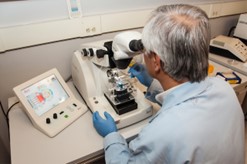Clinical studies can potentially find the cure for AIDS or the most effective cancer treatment. However, only a few trials result in success.
According to BioPharma Dive, 85% of clinical trial fail to recruit enough patients.
So, what’s holding volunteers and investigators back from participating? Moreover, why is it becoming difficult for clinical trial managers to recruit them?
Amber Kingston of Florida discusses the challenges people face when conducting clinical research.
The Exhausting, Alarming, Yet Rewarding Procedures
Clinical research is paramount to society.
Without clinical trials, people would still rely on lobotomy for depression, opium for coughs, or mercury for syphilis.
Needless to say, science must continue evolving – without participants, new diseases can emerge, and many outdated treatments will continue to be conducted.
But why is participating in clinical trials unappealing?
To Volunteers, It’s Inconvenient
Most volunteers refuse to participate when the clinical trial doesn’t seem beneficial to them.
In some cases, a volunteer withdraws from the trial when faced with the following:
- The site is too far from their residence.
- They don’t find the value of the study.
- They fear the side effects of the experiment.
It may be easy to recruit other volunteers – as others would agree to participate. But unlike volunteers, medical professionals are more limited.
To Investigators, It’s Taxing
In a journal by Rebecca A. English, Robert Giffin, and Yeonwoo Lebovitz (published by the National Institutes of Health and The National Academies Press), the authors noted that some of the reasons why investigators hesitate contributing to clinical research are due to:
- The demanding nature of clinical research.
- The lack of qualified specialists.
- General disinterest in clinical research.
But this doesn’t mean nobody is willing to participate. Sometimes, managers are just unsure where to find them.
To Managers, It’s Unmarketable
Clinical trial managers’ main problems are the ones investigators and volunteers are concerned about – but these challenges have solutions.
Let’s take a look at some of them:
Emphasis on the study’s significance
People can feel indifferent toward clinical studies due to unawareness of their potential. However, if clinical research managers provide participants with a concise goal – and its processes – volunteers and investigators can understand the study better.
Still, as willing as they are to contribute, some of them find participation inconvenient.
Improved accommodations
Others find the clinical trial sites too far to travel to. As a result, many don’t bother going – no matter how eager they are to help. To prevent this, managers can provide participants with financial compensation – gas money or transportation reimbursement.
Additionally, managers can make communication better – through virtual meetings or other messaging platforms, minimizing the need for participants to travel.
But managers must also ensure they access the right people for the study.

Expanding the recruitment pool
Many don’t find urgency in participating in studies – unless it resonates with them or is marketed towards them.
For easier recruitment, managers can work with recruitment agencies and see which volunteer has the specific genes, diseases, or allergies relevant to the study.
Furthermore, an agency can make it easier for managers to locate medical professionals actively studying or specializing in curing a specific disease.
Conclusion
In 2020, over 3 million people died from COVID-19. Hence, the world’s anticipation for scientists to develop a vaccine.
Unfortunately, not everyone senses the same urgency in finding cures for other diseases.
Diseases shouldn’t be ignored until the globe suffers from them again, as these can afflict anyone – from a world leader to a beloved family member.
That said, anyone who can participate in clinical studies should participate – science and society rely on these studies.
